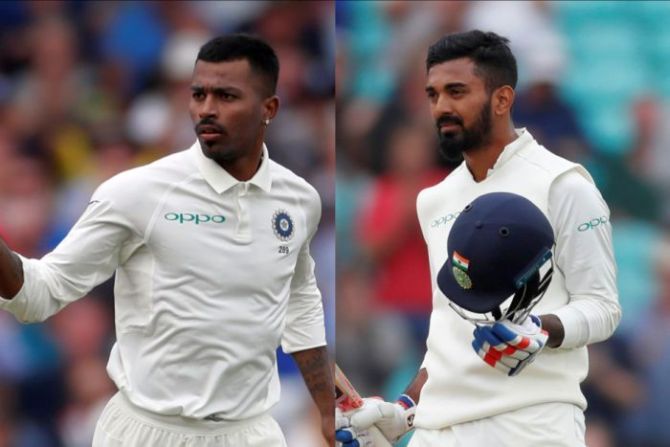 | « Back to article | Print this article |
India has a history of successful mascots. The adorable Amul Girl has been gracing hoardings with topical punch lines. And Maharaja, launched way back in the 1940s, continues to represent the Air India with a new look since 2015.

Celebrities are under a finer microscope with social media not missing a chance to comment on almost everything they say.
As such, brand-endorser relationships are becoming increasingly precarious.
Brands find themselves striving harder to uphold their corporate image which is linked to the celebrity’s when they are in a business relationship.
Case in point, the recent furor over the statements made by players Hardik Pandya and K L Rahul on Star World show Koffee With Karan.
As soon as the episode was aired, twitterati began calling out the misogynist comments on the show.
The two have been banned from the ongoing India tour of Australia, and face the wrath of the Board of Control of Cricket in India.
Grooming appliance brand Gillette ended its endorsement contract with Pandya. This was the player’s only significant endorsement project. He also endorses a denim brand named Sin Denim.
Rahul is associated with sportswear brand Puma.
“In the face of a controversy, brands will always err on the side of caution. They have an image to maintain which, in many cases, is a global one.
"Hence, when such things happen, they would rather suspend or end the association, than be caught in the crossfire,” says Harish Bijjoor, founder of brand consultancy firm Harish Bijoor Consults.
Endorsement contracts are becoming tenacious in that they include various indemnity clauses, giving both, the celebrity and the brand a way out in case either is found in the eye of a storm.
“We may eventually see brands go back to the era of mascots. Mascots can never get into trouble for bad behaviour or offensive comments.
"They could be seen as a safer bet. It may not happen immediately, but is a possibility,” Bijoor says.
India has a history of successful mascots. The adorable Amul Girl has been gracing hoardings with topical punch lines.
And Maharaja, launched way back in the 1940s, continues to represent the Air India with a new look since 2015.
In case of mascots, the brand has complete ownership of the communication, and the vehicle, with no scope of misdemeanour, and its consequences.
Indranil Das Blah, co-chief executive at entertainment firm KWAN, says this incident is a lesson for talent managers.
“We live in a time when everything a celebrity says will be dissected by the people. So, grooming the talent becomes important.
"It’s not only about saying the right thing anymore, it is also about having the right attitude at all times.”
The general practice is for managers to construct a form of code of conduct.
This would include the platforms the celebrities engage on, the shows they attend, and the comments they make.
“Frankly, any manager would have jumped at the opportunity for their talent to appear on Koffee With Karan. But when you see the interview, you know that there is a basic attitude issue.
"Yes, they could have been better prepared by their managers, but some amount of self censorship should have come in as well,” a brand expert says.
Das Blah says Pandya and Rahul should now work on rebuilding their image.
“They could invest in a cause and work from there. But it has to be genuine. The damage to their brand is done, and correcting that will not happen overnight.”
He believes that given the stage of their career, and their age, the two have the opportunity to redeem themselves “as long as they are no more faux pas, and they continue to perform on the field”.